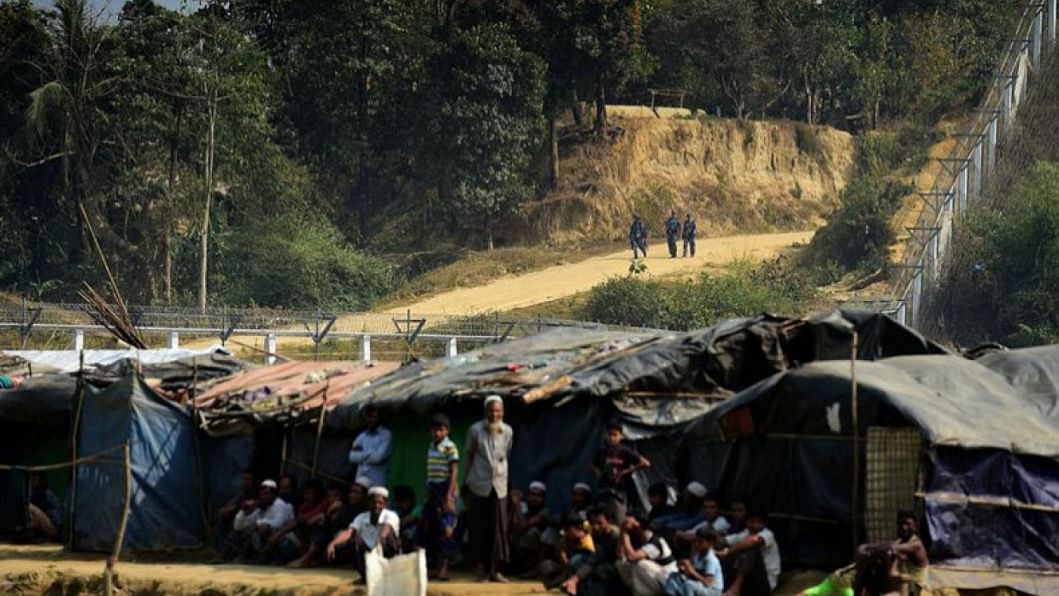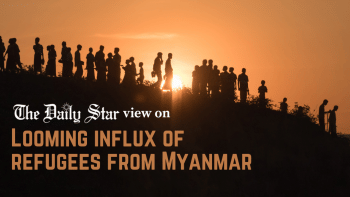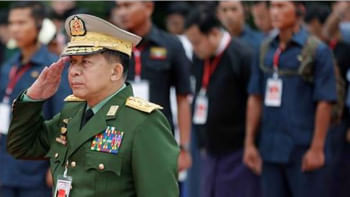Bangladesh should revisit its Myanmar policy

On September 18, 2022, for the fourth time, Myanmar Ambassador to Bangladesh Aung Kyaw Moe was summoned by the foreign ministry to protest the repeated violation of Bangladesh's land and airspace by the troublesome neighbour in recent weeks. Since mid-August, Myanmar has been in the grips of a civil war, and in the process, shells have landed inside the Bangladesh border. On September 16, an 18-year-old Rohingya youth was killed, and five others were injured after a mortar shell fired from Myanmar exploded in a Rohingya camp. And earlier on September 3, Myanmar military aircraft entered Bangladeshi airspace, orchestrating firing attacks from both fighter jets and helicopters, after which the Border Guard Bangladesh (BGB) was put on alert.
While it is commendable that Bangladesh has not fallen for the provocations of the Myanmar military and is exercising extreme restraint – a demonstration of Bangladesh's political maturity – it is high time the government carefully and critically examined the recent development to better understand the reasons behind this escalation. Are the firing and shelling solely the result of the Tatmadaw's fight against the Arakan Army, or is there a more sinister reason behind these incidents? Could it be a further attempt to flush out the remaining Rohingyas in Myanmar?
In the absence of the rule of democracy, the military junta of Myanmar has zero accountability to the people, or the international community for that matter, and are highly likely to make ill manoeuvres – both in terms of internal and external policies – which could yield disastrous impacts on regional stability.
Not that this is the first time that tensions along the Bangladesh-Myanmar border have escalated. In 2020, Myanmar deployed more than 2,500 additional troops near the border in the pretext of fighting internal insurgency. In 2018, several months after the Rohingya exodus, Myanmar sent troops along the border and Bangladesh had to summon the Myanmar envoy to have them pulled back. In 2009, abnormal movement of Myanmar troops along the border was observed, in response to which Bangladesh also sent army reinforcements to the border. In May 2014, border guards of the two countries exchanged gunfire that was caused by the killing of a Bangladeshi guard on duty.

While in the past, tensions were diffused with some diplomatic efforts, this time around, it seems even formal complaints are not enough for the Myanmar junta to stop the firing spree along border areas, resulting in the death of one individual and injuries of many so far. The situation has reached a point where the Bangladesh government may have to take this issue to the United Nations, as suggested by the home minister on September 17.
But the nature or extent of support the UN can offer in this regard remains unclear. In the past, the UN's role has been limited to condemning Myanmar's actions, or at best attempting (and failing) to impose sanctions on the country. And with Myanmar now strengthening ties with Russia – earlier in September, Myanmar's junta chief Min Aung Hlaing visited Russia for the second time in two months to attend the Eastern Economic Forum in Vladivostok – and with China having its back, it would not be wrong to assume that any UN attempt to impose economic sanctions on Myanmar would be vetoed.
The UN has recently asked countries to halt arms sales to Myanmar as its military terrorises and persecutes its own people. But since a significant volume of these arms are Chinese – and the two countries share close ties – how effective the UN call would be remains to be seen. The other countries that are engaged in arms trade with Myanmar include India, Russia, Ukraine, Israel, the Philippines, and North Korea, among others, and the arms portfolio includes fighter jets, missiles and missile launchers, armoured combat vehicles and warships, among many other weapons.
Bangladesh can expect little help from the UN or any other regional forums in stopping Myanmar in its aggressive tracks, as has been the case in the past, as the majority of the countries in the region have invested in Myanmar – both China and India have invested in Rakhine itself. Even after the coup, the Myanmar military junta has approved foreign investment amounting to USD 3.8 billion – USD 2.5 billion alone on a liquefied natural gas power plant – according to a Reuters report. It was revealed that China was one of the top investors; the list also included businesses from Japan, Thailand, South Korea and Singapore, among others.
One hope, though, is the recent regional development in the Asean community. During the 55th Asean Foreign Ministers' Meeting in Phnom Penh, Cambodia, Myanmar generals were barred from attending unless they made headway on a 15-month-old plan to address the issues triggered by the coup. However, with Chinese backing, as has been demonstrated by the visit of China's Foreign Minister Wang Yi to Myanmar in July this year, Myanmar's junta remains confident and reckless.
In light of all this, it might now be time for Bangladesh to revisit its bilateral policy towards Myanmar, including in trade, commerce and diplomacy. In the 2021-22 fiscal year, trade between Bangladesh and Myanmar was expected to reach more than 225 percent. In FY21, between July and March, the volume of trade between Bangladesh and Myanmar stood at 185,822.28 tonnes. While the financial value of these trading interactions may not hold much value for Myanmar, especially in view of the billions of dollars it is receiving in foreign direct investment, Bangladesh severing these ties with Myanmar will carry a symbolic value. Also, the diplomatic ties with Myanmar needs to be revisited in light of the recent failures of diplomatic manoeuvres to stop shelling at the border.
At the same time, Bangladesh should continue engagement with the international community to diffuse the situation with Myanmar and find a suitable rehabilitation solution for the Rohingya refugees. Bangladesh is a key strategic player in the region, with its own geopolitical advantages, and it wisely maintains strategic relations with both China and India, as well as the region as a whole. We should engage with all our regional partners and leverage our position to push Myanmar to resolve the outstanding issues. The Myanmar ambassador during a recent meeting suggested that the Arakan Army was stealing their military's bullets and using them to shell along the Bangladesh-Myanmar border; however, the country cannot shrug off the responsibility of the actions of its people or the military.
At the end of the day, the actions of the international community will reflect on their values and ethics, but we must continue to play our part in upholding our territorial integrity and protecting the interests of the displaced Rohingya, whom we have sheltered for so many decades.
Tasneem Tayeb is a columnist for The Daily Star. Her Twitter handle is @tasneem_tayeb


 For all latest news, follow The Daily Star's Google News channel.
For all latest news, follow The Daily Star's Google News channel. 









Comments